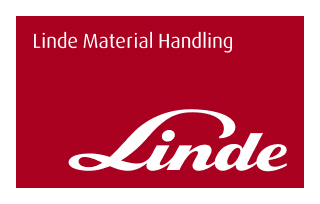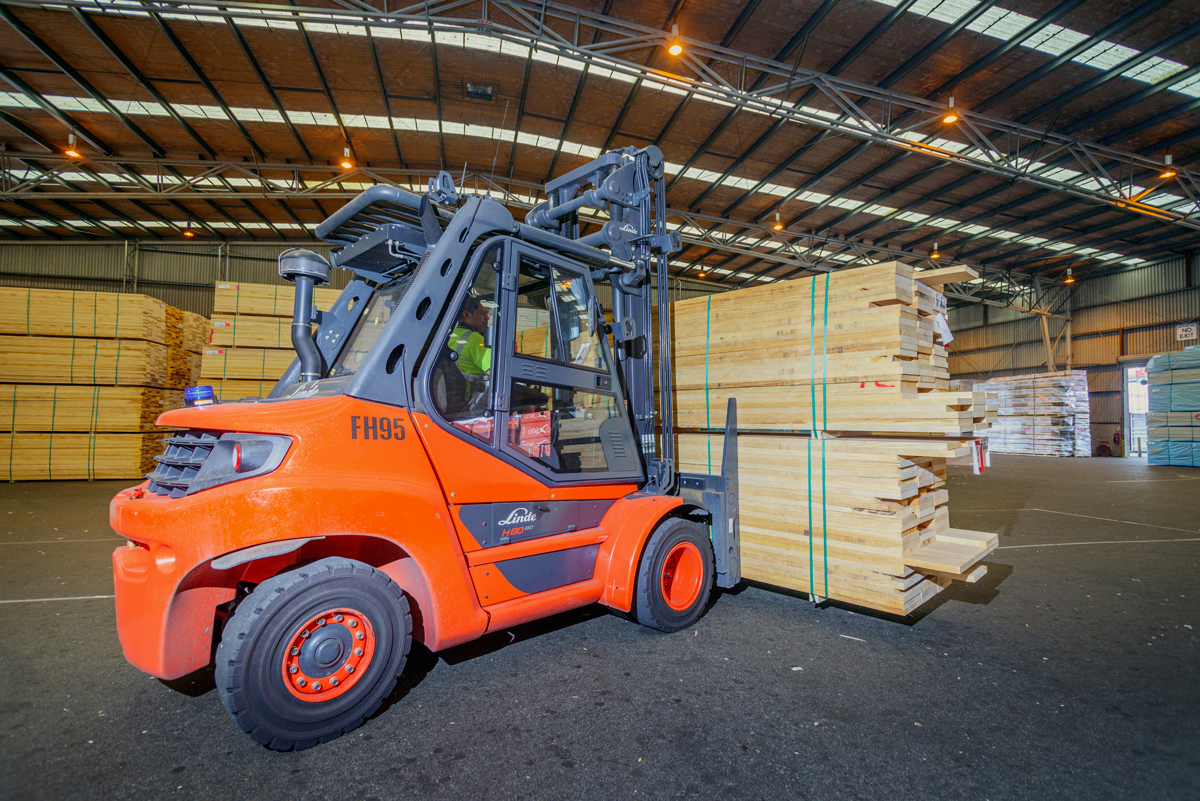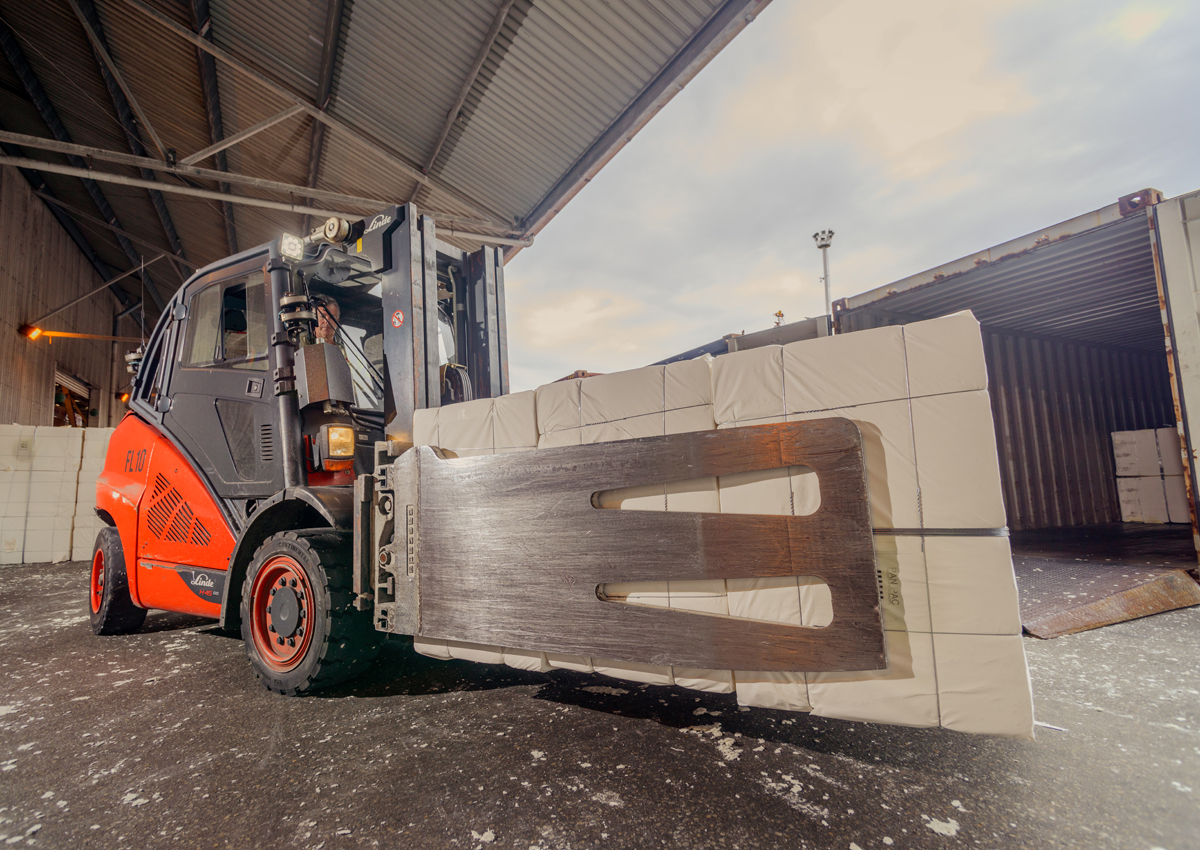- Blog
- Customers


Booming business at Napier Port on Hawke Bay in New Zealand’s North Island forced the operator to re-examine its needs – and double down on its reliance on Linde Material Handling equipment.
Over the last few years, the port’s export throughput, primarily of timber, pulp and agricultural products, has seen steep growth. Napier Port realised that reliance on second-hand material handling equipment, even Linde equipment, would no longer suffice.
In recent months the Port Pack facility has taken delivery of seven Linde 396 series H80D eight tonne forklifts which handle one pulp pack at a time, creating stockpiles of pulp packs which in turn are packed into containers by Linde 394 series 4.5 tonne diesel forklifts, fitted with single pack pulp clamps.
“When we looked at upgrading our forklift fleet we were confident enough with Linde to make it a paper exercise,” General Cargo Manager Mark Babbington said. “We have other brands of forklift working in the port so we were familiar with their performance and reliability characteristics.
We wanted quality forklifts which our operators could work with over long shifts and which would be extremely reliable for us.
“Because of the pace of work until a few years ago, we generally operated with second-hand equipment, often sourced from saw mills.
“After a hard life of 12,000 to 15,000 hours at a saw mill these forklifts, which were frequently Linde diesels, would work for us for two or three more years.Because of their low cost we could afford to have an extra forklift on standby for when one of the others needed repairs.
“That is no longer practical to consider, because the operation has gone from a single shift five days a week to a 6:00am to midnight operation six days a week from – and at times, we go to seven days a week.
“Above all else we now need reliability from our forklifts, since we no longer operate with a spare. Our changing circumstances sent us to the market to see what was available.”

The Port Pack operation, Napier Port’s in-house packing facility, which handles mainly paper pulp and timber has seen very strong growth. Cargo arrives by road and rail and is received into other warehouses before being transferred to Port Pack. Some timber arrives in container loads and some arrives from the mill needing to be packed into containers.
Although Mark Babbington and the Port Pack team looked at proposals from several major forklift suppliers, he admits there was a certain degree of preference for Linde.
“Many of the used forklifts we had operated were Linde forklifts and our staff were very keen for us to continue to use Linde equipment,” he said.
“Over the years we had built up a very good relationship with Linde’s representation in New Zealand, so that was also a factor.
“The Linde equipment wasn’t the cheapest, but we were no longer in the market just for cheap equipment. We wanted quality forklifts which our operators could work with over long shifts and which would be extremely reliable for us.
With the latest Linde forklifts in our fleet a lot of the feedback has been around the comfort they provide, even at the end of an eight hour shift.
“Linde made good sense to us when we looked at whole of life costs. The cheaper forklifts we considered just couldn’t offer the reliability or the lifespan we have come to expect from Linde. We see the Linde machines as being the best in the forklift market and that’s what we need for the intensity of our operations. Four years ago, Napier Port took delivery of three 1401 series Linde H160D-1200 diesel 16 tonne forklifts fitted with double clamps for unloading pulp bales from rail wagons. Their configuration gives operators the ability to unload the wagons with access from just one side. It also has a used 16 tonne Linde forklift for unloading timber from rail wagons and handling steel.
“Our operators have made it clear to us that they like the Linde hydrostatic drive. With the latest Linde forklifts in our fleet a lot of the feedback has been around the comfort they provide, even at the end of an eight hour shift.

“The hydraulics are fast. Lifting and lowering just happens without having to rev the machine. It’s a more relaxed work environment. None of our team have anything negative to say. All the feedback is positive.
“The operators tell me they can walk home without feeling sore or worn out. Response to the 4.5 tonne Linde forklifts has been even more significant for us. With another brand of 4.5 tonne diesel forklift we have had issues with exhaust emissions, something we take very seriously, especially since those forklifts are in and out of containers all the time.
“We ran tests and although the emissions from the other brand of forklift were within limits they were much higher than the Linde diesels’. There just hasn’t been an issue with emissions from the Linde diesel forklifts, so we took the decision to phase out the other brand and replace them with Linde equipment.”
I’m certain we would get ten years out of them without any problem at all.
With the switch from leased equipment to forklift purchase, the Napier Port workshop staff have taken on the maintenance role which was previously carried out externally. Here too the experience with Linde has been positive, with a Linde master technician flown in to provide training. Specialised tools and software have also been provided to give the company more autonomy.
Two years ago Napier Port handled 1.2 million tonnes of logs and this year it expects to handle 2.1 million tonnes. Coupled with the growth of its Port Pack activities that made an upgrade to the best possible material handling equipment imperative.
The eight tonne Linde forklifts in the Port Pack operation generally log 1,800 to 2,000 hours a year.
“When we bought them we purchased seven at once, so we needed to get the decision correct,” Mark Babbington said. “At present we plan to keep them for seven years although I’m certain we would get ten years out of them without any problem at all. That’s been our experience with Linde.”